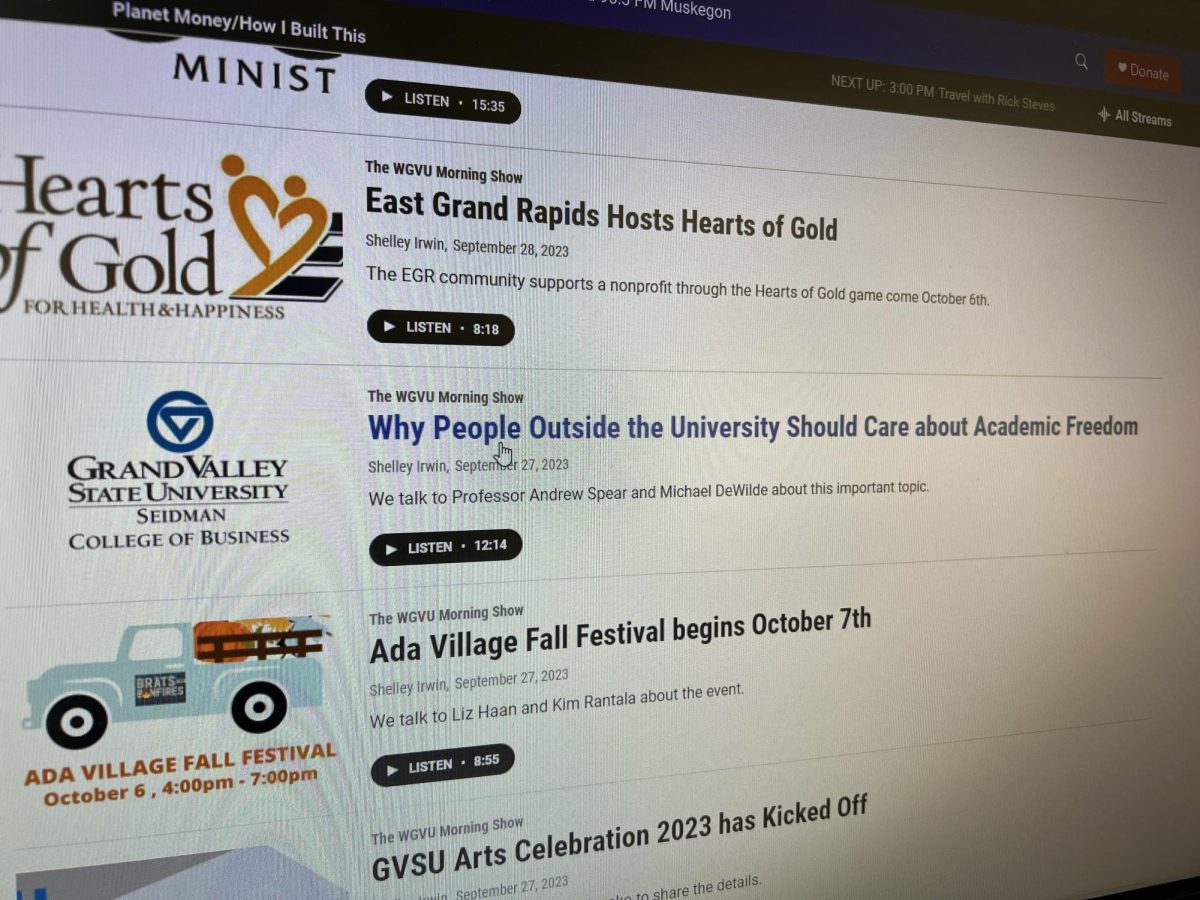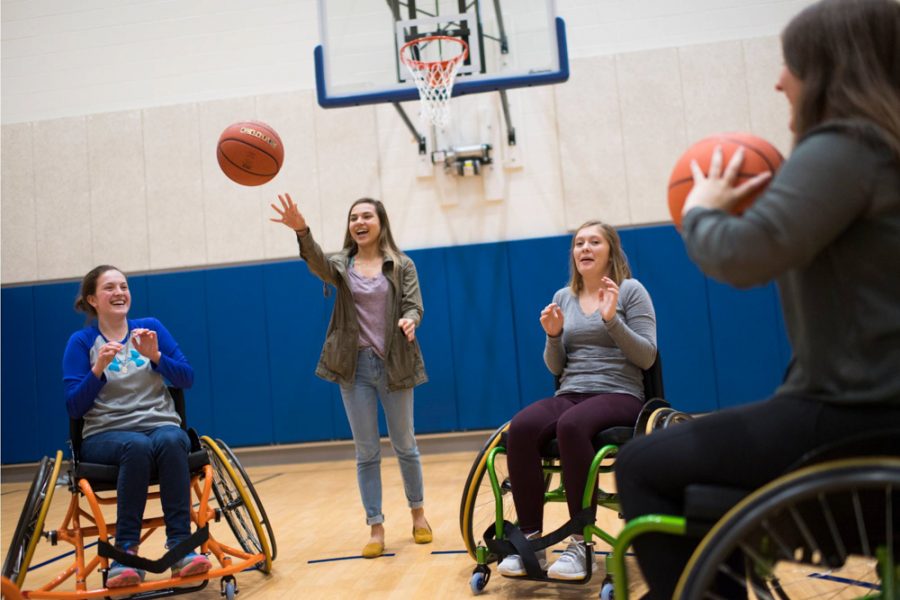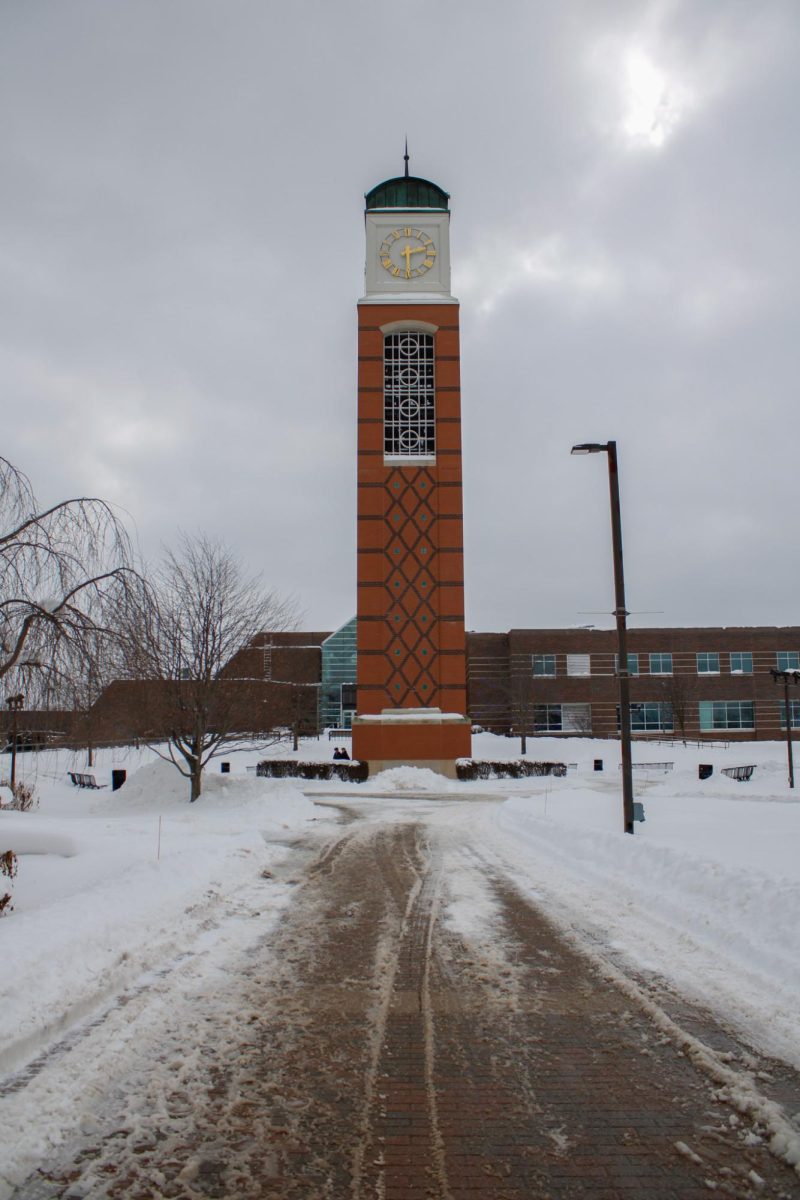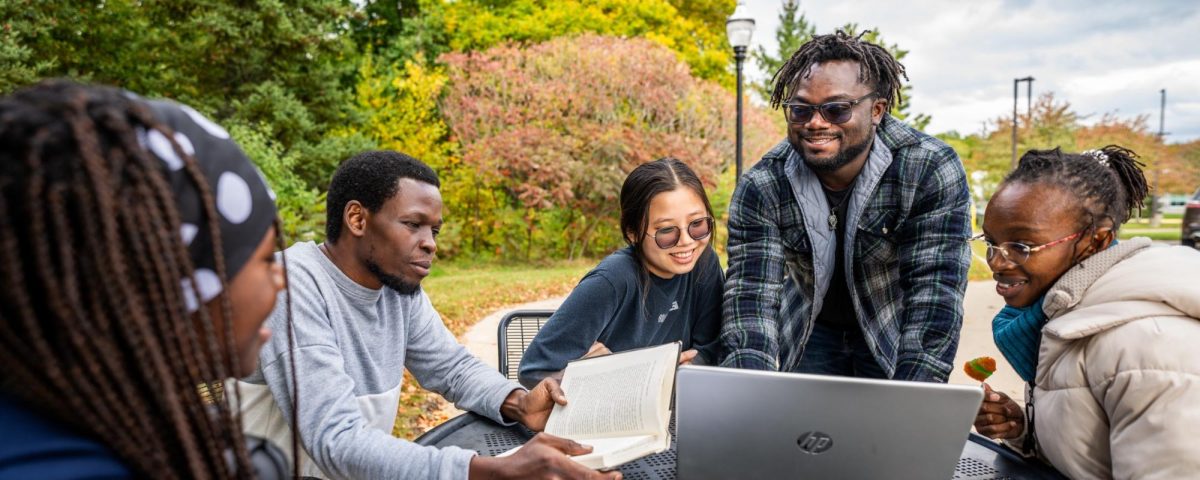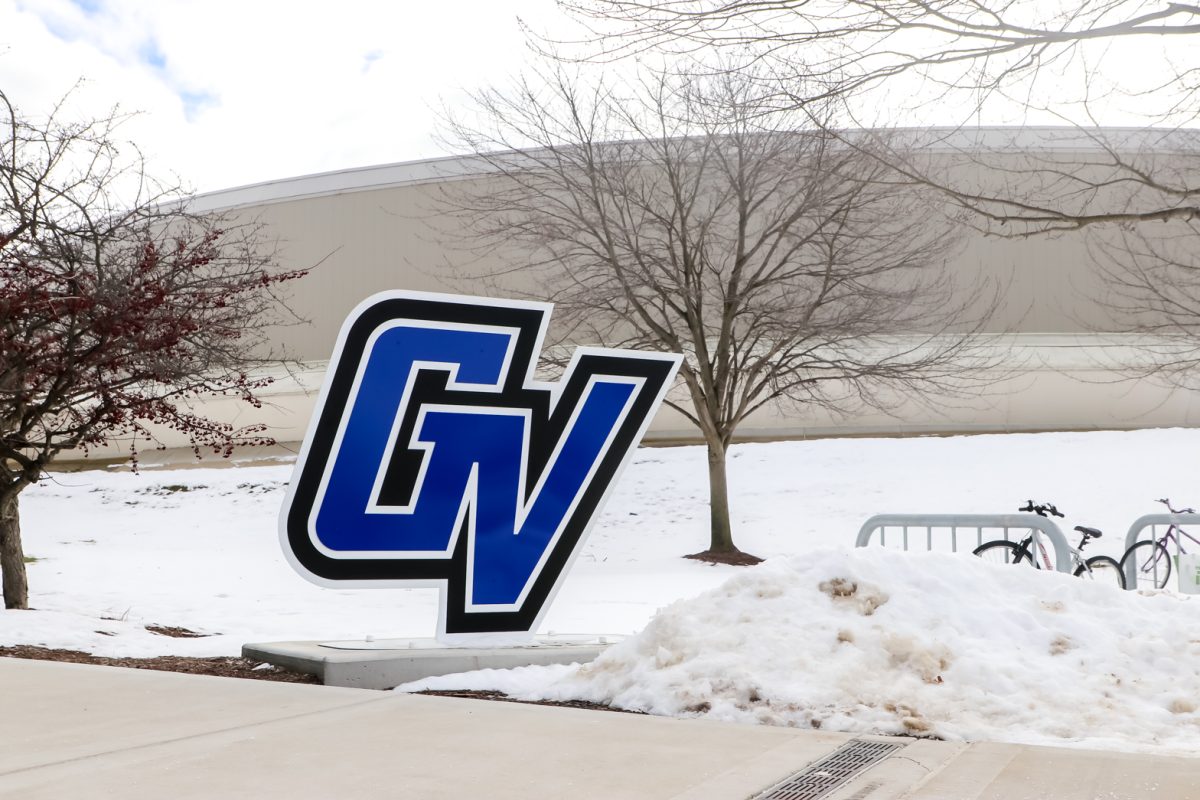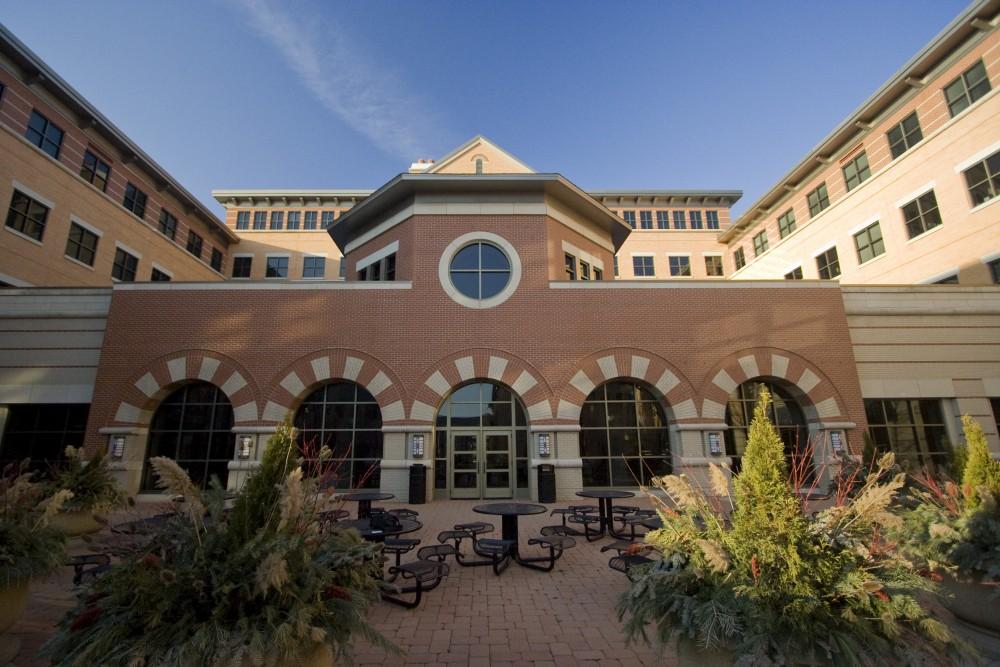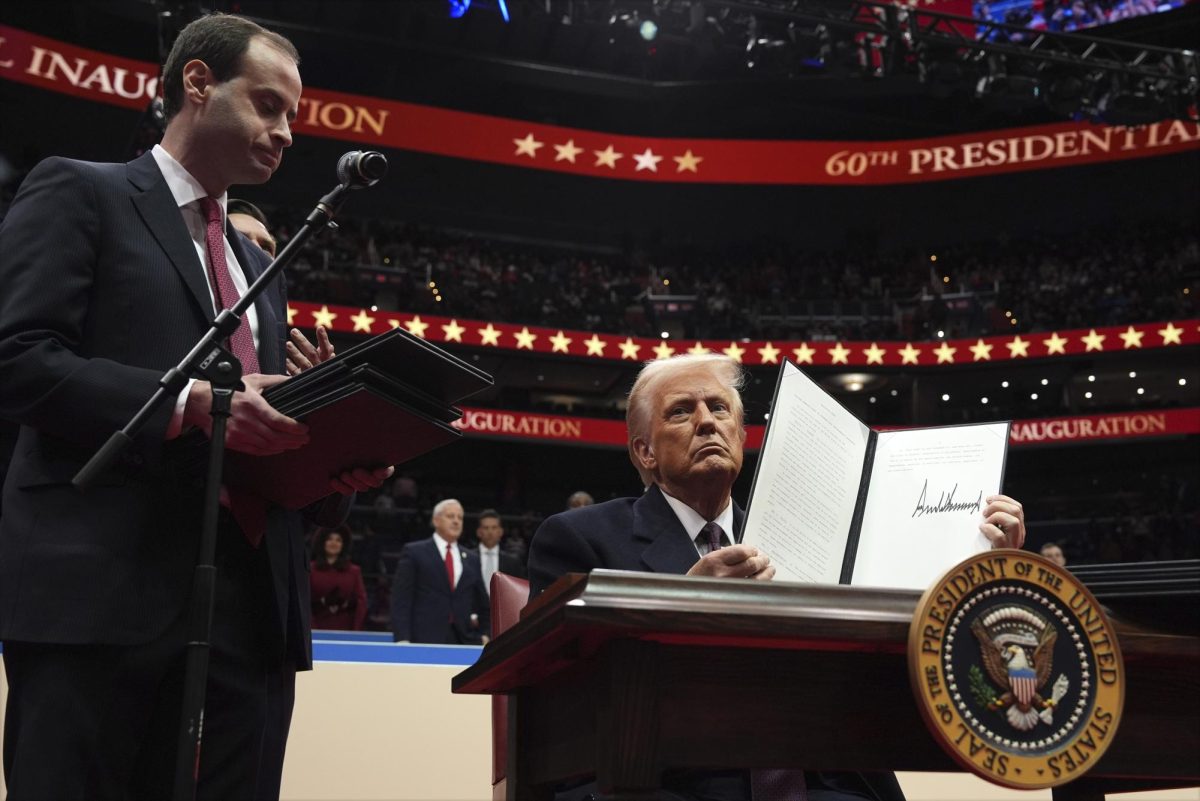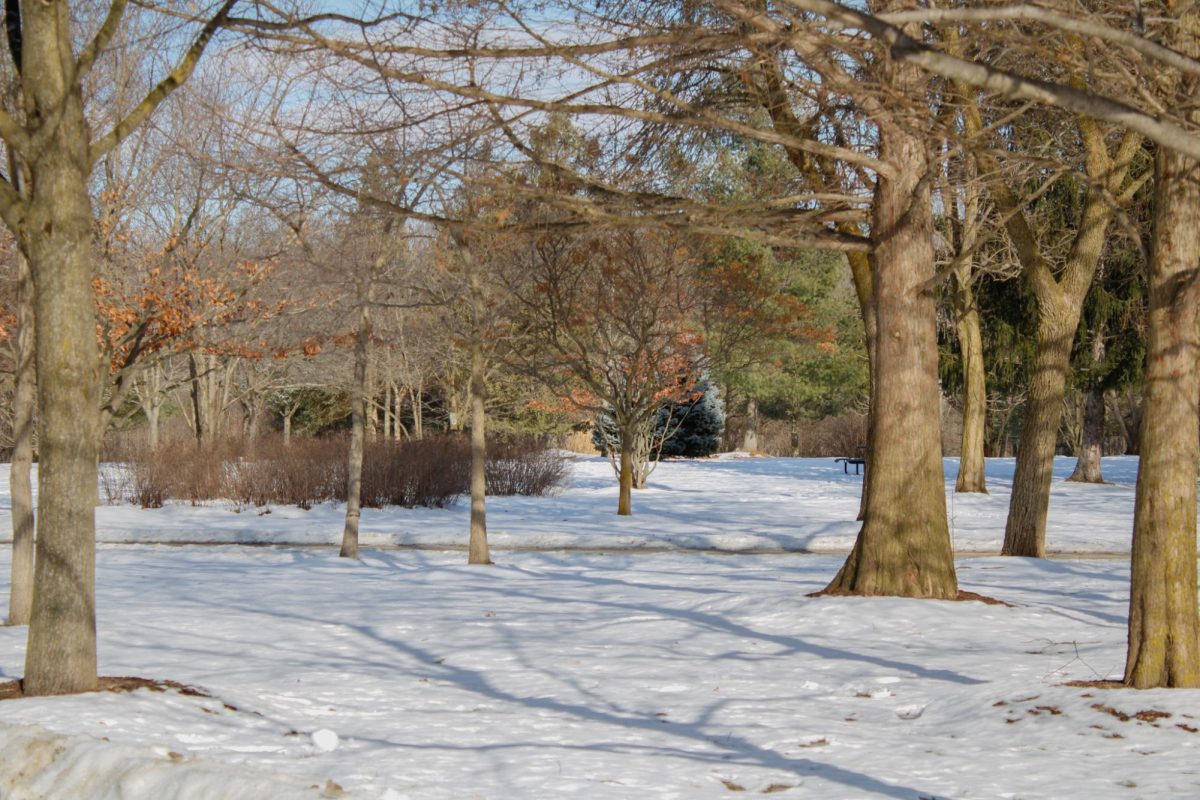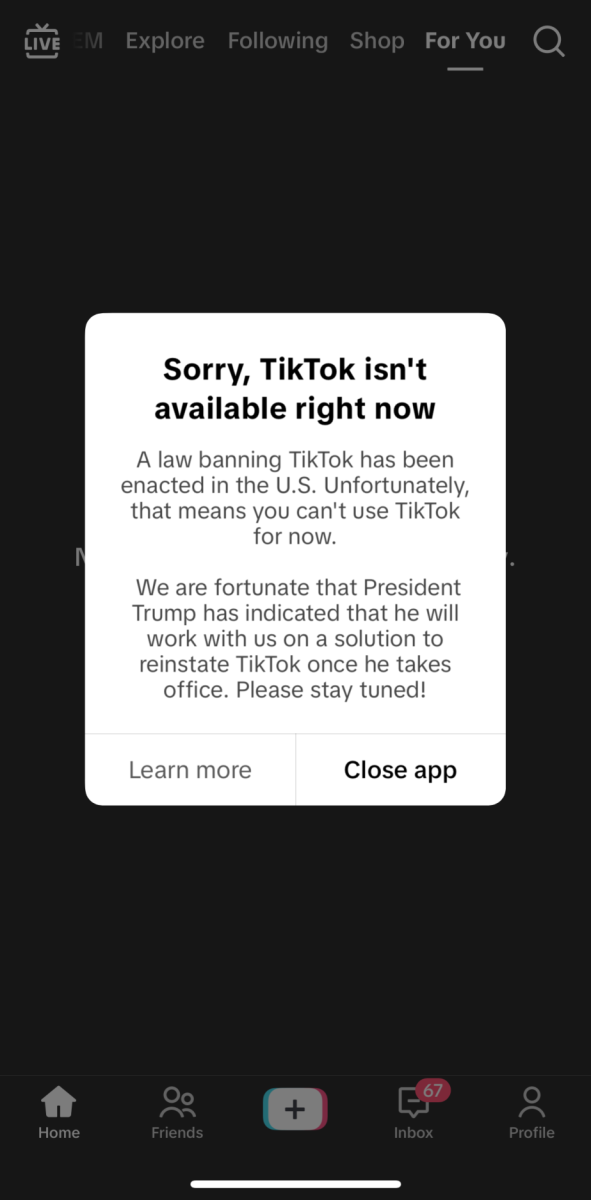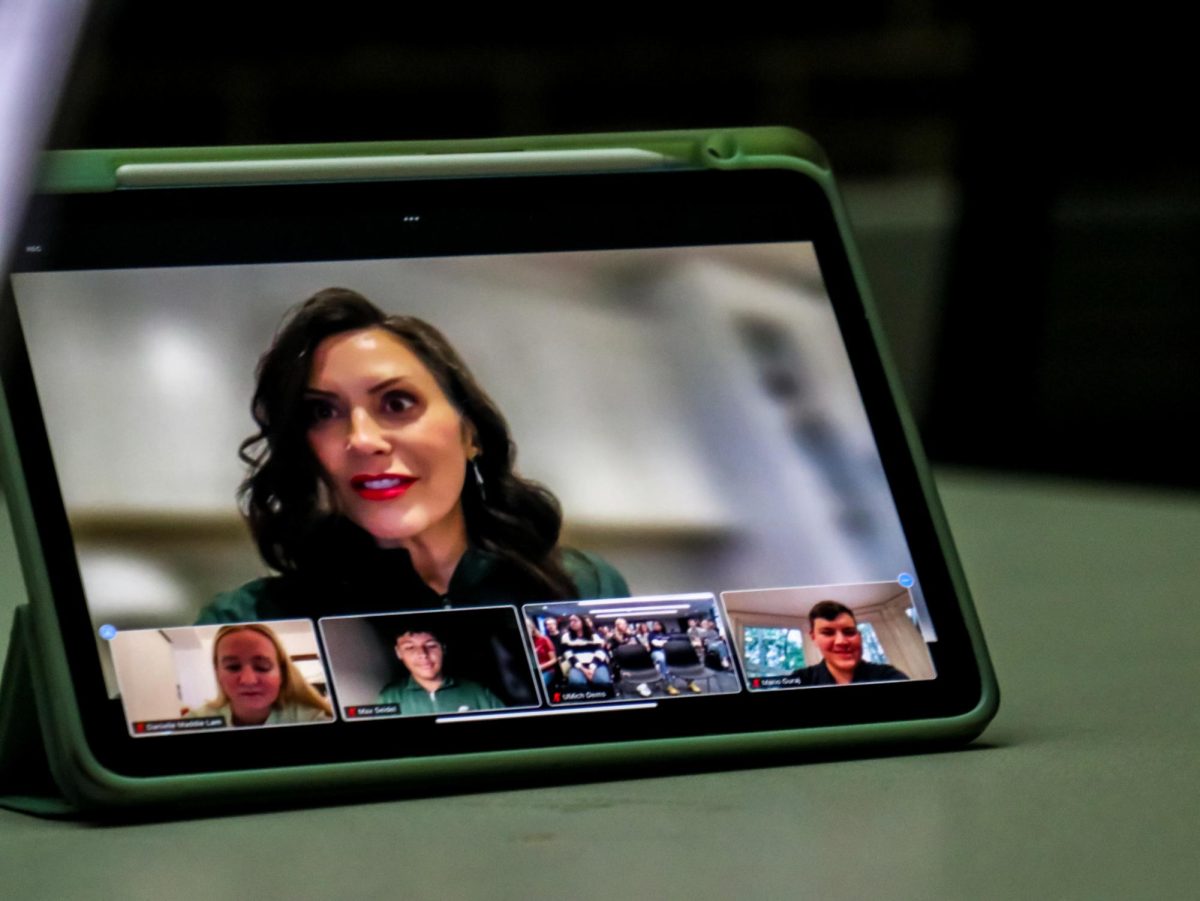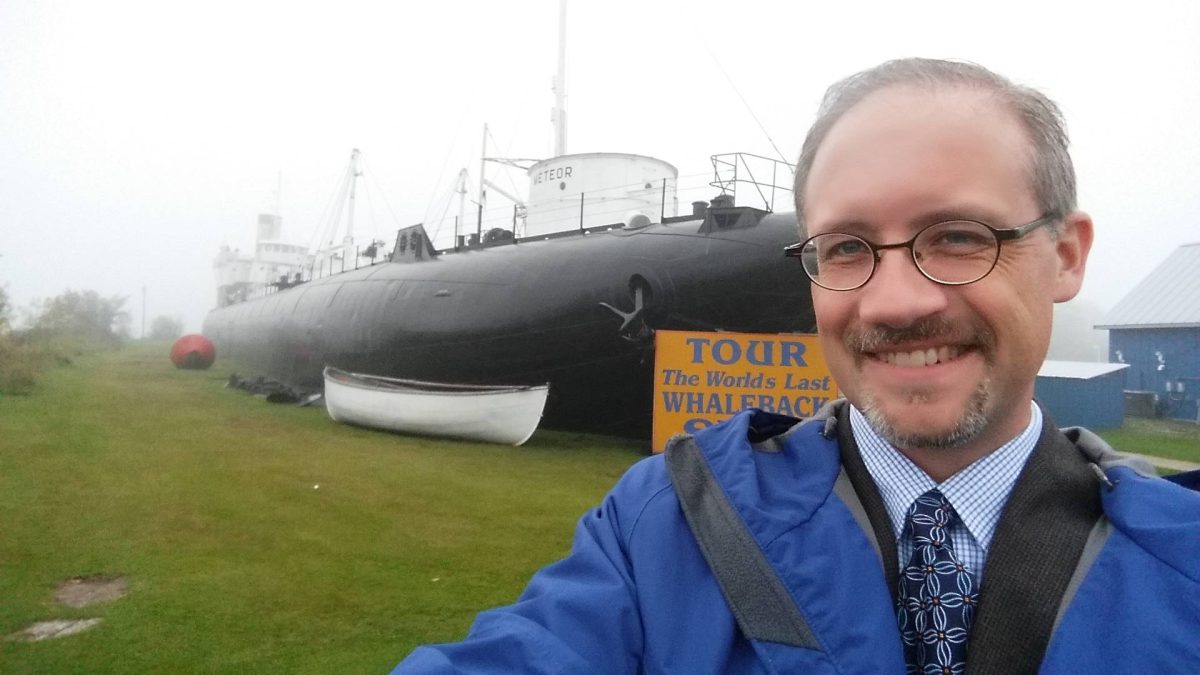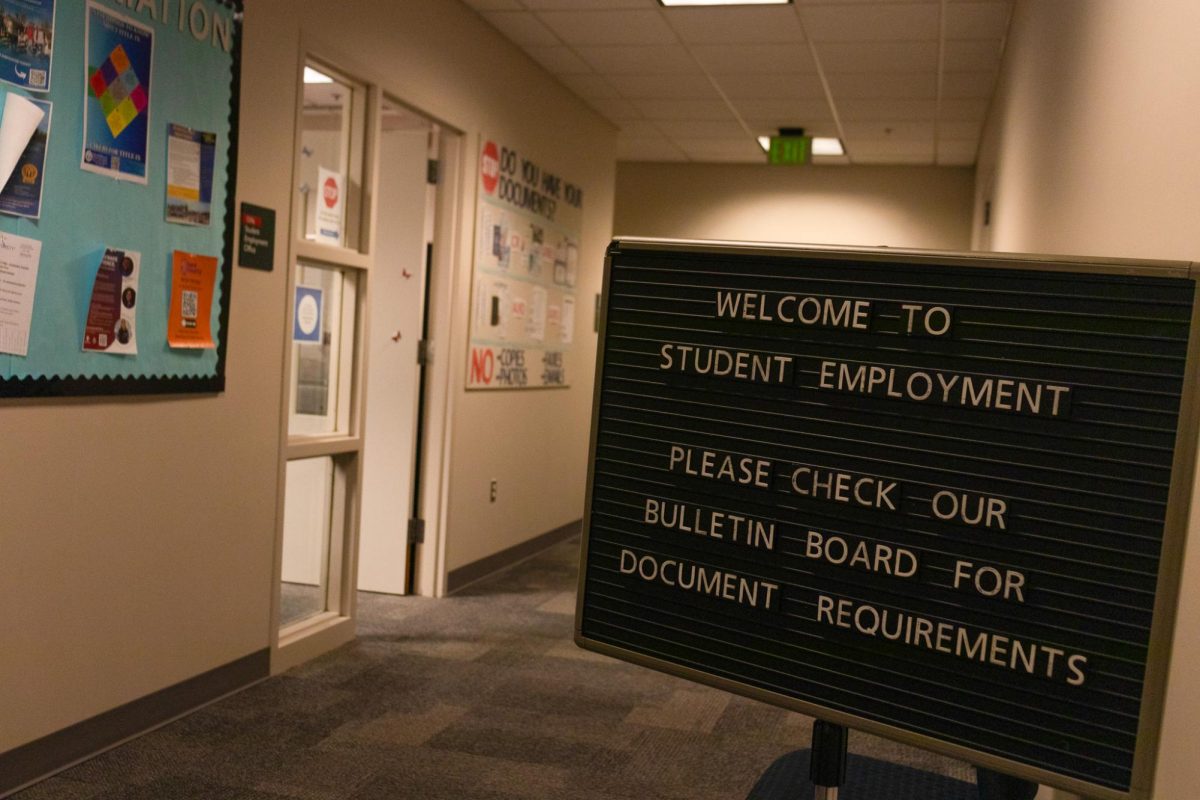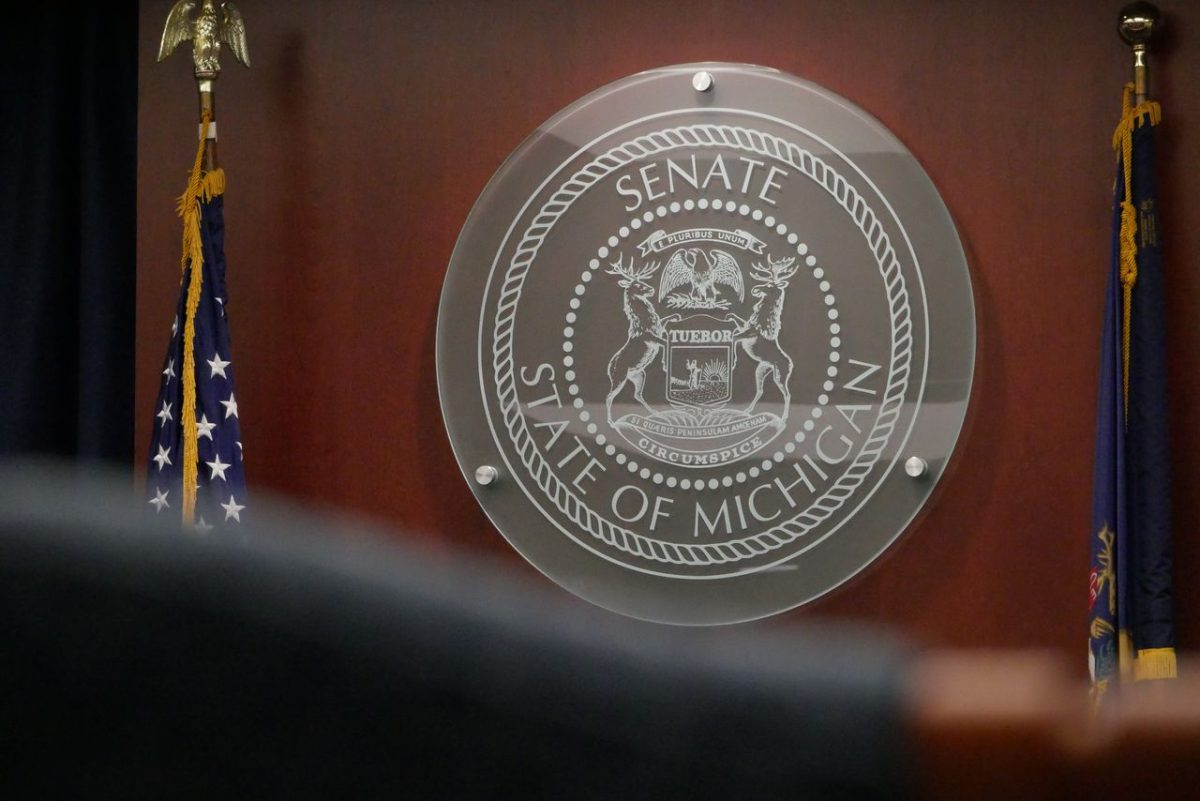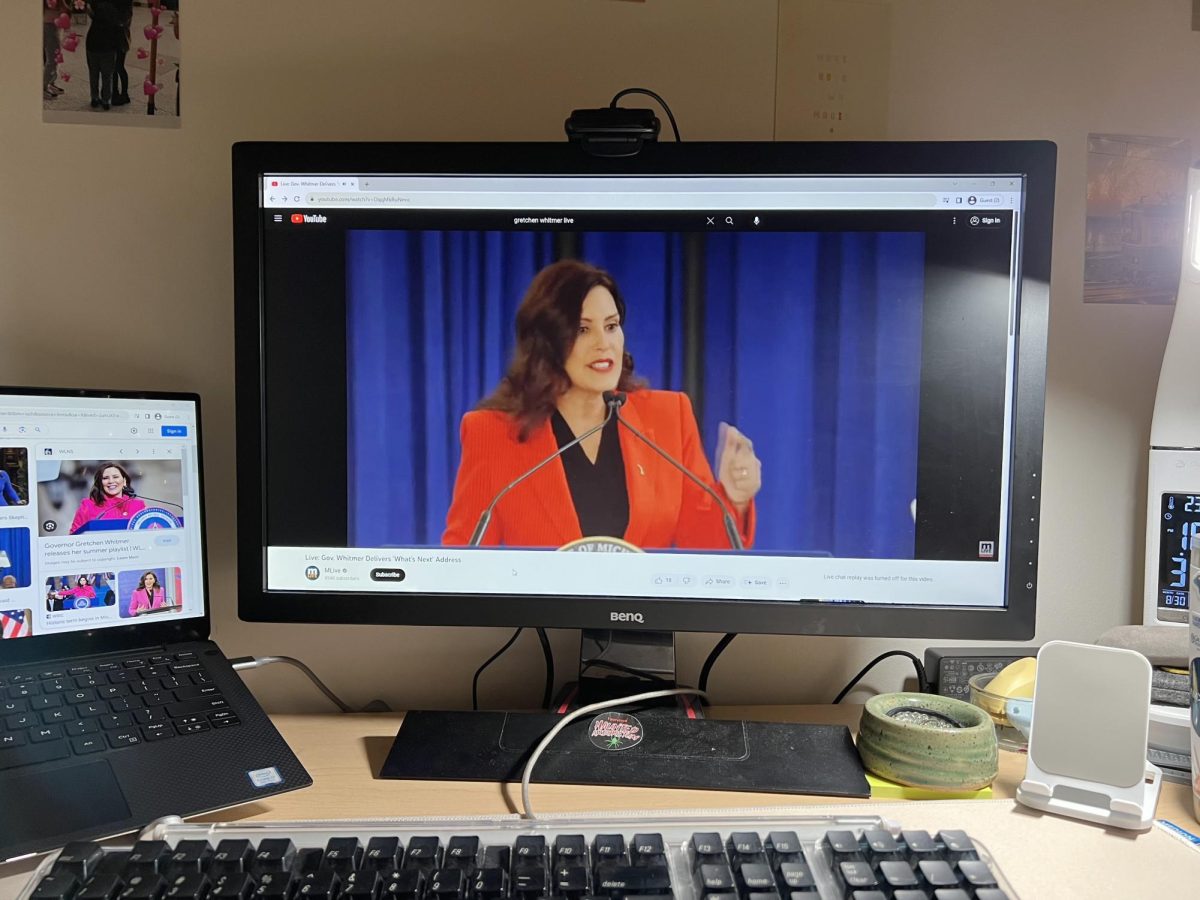Grand Valley State University’s Koeze Business Ethics Initiative (KBEI) Director Michael DeWilde and philosophy professor Andrew Spear were guests on the Shelley Irwin Show on WGVU. The segment took place on Sept. 27 at 9:30 a.m. for a conversation on the current state of academic freedom.
Both people stressed the importance of academic freedom in universities and other institutions. They presented reasons to why academic freedom is at risk.
“The two of us, along with many of our colleagues, not just here, but across the country, have watched as academic freedom has increasingly come under threat both from legislators. Look at what’s happening in Ohio, Texas, Florida, kind of repression of restraint on what professors can and can’t do in the classroom,” DeWilde said. “It’s how we produce knowledge. It’s how we talk to one another, and there cannot be any unreasonable restraints on a professor’s ability to pursue research no matter how difficult or controversial the issues might be.”
DeWilde is also a professor of management at the Seidman College of Business at GVSU. He has taught previously in GVSU’s philosophy department, offering courses on human nature, eastern philosophy and service learning.
Spear added to DeWilde’s ideas surrounding academic freedom and helped define it.
“Academic freedom is focused around the goals of pursuing knowledge, generating knowledge, or re-exploring knowledge, and also of educating students and assisting in the education of students. Their academic freedom is crucial if we’re going to maintain the distinction between indoctrination and education,” Spear said.
Both Spear and DeWilde want people to know how important education is, and advocate for the ability to educate without partisan politics coming between necessary information. They want students to be able to learn from the university and use their own thoughts to understand and legitimize their learnings on their own without the influence of a specific point of view.
“Indoctrination is imposing fixed products on students saying, ‘here’s what you will believe no matter what you, you know, think or how you feel.’ It’s just getting people to accept it. Whereas education is a process whereby they (students) internalize capacities for thought and reflection that helps them to formulate and criticize and commit themselves to believe on their own autonomously,” Spear said.
Spear is on the executive board of the GVSU chapter of the American Association of University Professors and teaches courses covering the history of analytic philosophy, epistemology (theory of knowledge) and logic, as well as courses, focused on knowledge, politics, social media and ethics of digital cultures.
“Professors have a responsibility to make sure when they’re in the classroom that what they’re teaching, the way they interact with students is aimed at the goals of knowledge developing students critical, pedagogically sound,” Spear said.
DeWilde said there are many factors that allow educational freedom to thrive and other factors that cause it to face challenges.
“Well, again, you think about the progressive knowledge base, sophisticated, democratic culture, what’s required to keep that going to sustain it, people who can do exactly what Andrew is talking about now. One of the reasons it’s under threat is because of the perception that the university has been ‘overtaken’ by a particular ideological point of view,” DeWilde said.
Spear stresses the importance of professional ethics and the collaborative process of course development in higher education when considering academic freedom.
“I really want to stress this, academic freedom doesn’t just mean that the professor goes into the classroom and says whatever they want. Classes are developed by shared governance by experts working together to think through what the most valuable and important way to set up our curriculum is,” Spear said. “Expertise is not possessed by politicians typically, by the way, and we are accountable to our peers in that process. So with academic freedom, there is professional ethics. And there is the shared governance process and those are real and substantial at universities here in Michigan and across the country.”




